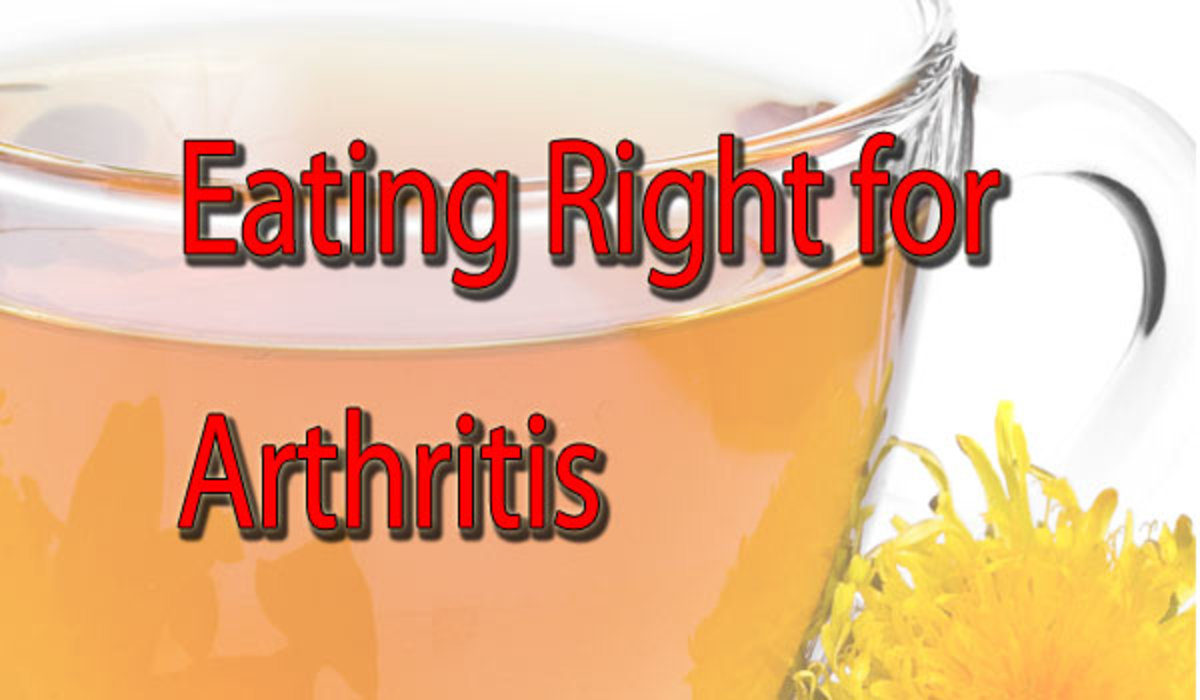
Rheumatoid Arthritis
As you all know, the arthritis has no cure yet. The hassle to move, it will get soft and aggravating to become a martyr effort to pick up a book on the shelf or get up from a chair, is caused by inflammation of the joints. In general, the problem becomes associated with trauma, exhaustion, autoimmune disorders or infections. The medical care and adherence to care, however, allow the patient to take a normal life without pain or physical limitations. The ideal scenario includes early diagnosis, practice mild exercise or physical therapy in less acute cases and some dietary adjustments. The main one is the consumption of foods rich in omega-3, fatty acid with anti-inflammatory action. Let us see how to make your meals more nutritious and protect your body from aching symptoms of rheumatoid arthritis.
I think everyone understands the need for a balanced diet for patients with RA, to make it even easier I will list some foods that should be part of your grocery shopping list:
- Increase consumption of foods rich in omega 3, found in cold-water fish such as salmon, tuna, cod, herring, mackerel, sardines, trout and chia seed, extra virgin olive oil and canola oil.
- Increase consumption of fiber found in vegetables, fruits and whole grains (oats, flaxseed, granola, whole grain breads)
- Eat foods rich in vitamin A, E and selenium for improving the defense system and reduce inflammation. Examples are: cauliflower, broccoli, cabbage, spinach, carrots, tomatoes, papaya, milk (skimmed), walnuts.
- Increase consumption of calcium sources such as milk and nonfat yogurt, ricotta, cream cheese, cottage.
- Eat foods with vitamin C, like orange, acerola, guava, cashew and pineapple.
- Increase the use of foods considered anti-inflammatory, such as garlic and onion.
Following these guidelines, you will have a very healthy and tasty diet!
Fish
Fish such as tuna, sardines and salmon are great sources of omega-3 polyunsaturated fatty acids, which prevent a process of conversion of nutrients in the body responsible for inflammation. The food also works as a great ally in controlling cholesterol, prevention of cardiovascular disease and even in alleviating the symptoms of PMS and menopause
Recommended amount: 200g twice a week
Canola Oil
In addition to omega-3 canola oil is also a source of omega-6 fatty acids, and beneficial in the prevention of heart disease and balance of pressure. Vitamin E, an antioxidant that fights free radicals is also present in canola oil, preventing the premature aging and the onset of degenerative diseases such as cancer.
Recommended amount: one to two tablespoons per day
Soybean Oil
Soybean oil, like other vegetable oils is a food rich in polyunsaturated fats such as omega-3 and omega-6 and an important source of vitamin E. It acts in the prevention of cardiovascular diseases in proper functioning of the immune and nervous system to fight free radicals. This type of oil also has anti-inflammatory action and helps regulate cholesterol levels in the body.
Recommended amount: 1 – 2 tablespoons per day

Olive oil
Finishing touches in preparing salads or even a delicious pizza, olive oil is an important food for health, thanks to the omega-3 fatty acids, polyphenols, vitamin E and beta-carotene present in it. The oil has anti-inflammatory and antioxidant function, for preserving cells, preventing the deterioration of these.
Recommended amount: one or two tablespoons per day
Try these Natural Remedies to Soothe Arthritis Pain
- 23 Easy Ways To Get Rid Of Muscle Cramps Fast at Home
Simple DIY natural home remedies to get rid of cramps, whether it be night cramps or cramps during period. Causes and treatment explained with tips to prevent them. Choose best treatment from the list… - How to Get Rid of Joint Pain and Inflammation Using Natural Supplements
Supplements are available for arthritis in every drugstore and pharmacy. The choice of products is often enormous. The best supplements for arthritis are Glucosamine, gelatin, Hyaluronic acid, Anti-inflammatory products.. - List of 8 Best Natural Anti Inflammatory Drugs for Better Results
Inflammation and pain often go together. NSAIDs are often advised to take precautions against the infection. However, they have side effects such as gastrointestinal complaints. There are also anti-inflammatory drugs that do not have these side effec - 18 Sureshot Natural Remedies for Arthritis Pain – Try This at Home
In this article you will get to know various tips on how to cure the pain and symptoms of arthritis without the need for a doctor and much knowledge about the disease.
Arugula
The dark green arugula leaves are a rich source of omega-3 and vitamins A and C, powerful antioxidants that fight free radicals. Also have other nutrients such as potassium and iron, important for regulating fluid balance in the body and the formation of blood cells (hemoglobin).
Recommended amount: one plate a day

Spinach
Spinach is a highly nutritious food, offering its composition in vitamins A, C and E, plus nutrients like omega-3, calcium , iron, potassium, bioflavonoids and carotenoids. Its antioxidant properties prevent some types of cancer, especially lung and prostate. Two other very important elements are folic acid, which fights anemia, and lutein, which strengthens the immune system, preventing problems such as macular degeneration.
Recommended amount: two to three tablespoons per day
Flaxseed
Rich in essential fatty acids, vitamin E and fiber, flaxseed is a food that provides greater blood flow, lowers bad cholesterol, prevents the formation of fat from the arterial plaques and promotes anti-inflammatory effects in the body. The seed also improves the functioning of the digestive system and eases the symptoms of PMS and menopause.
Recommended amount: one to three tablespoons per day
Chia
Seed of the time, originated from southern Mexico, chia is a great source of omega-3, iron, magnesium and calcium. Be in oil, flour or grain version, the food promotes satiety, prevents cardiovascular disease, helps in maintaining muscle mass, strengthens the immune system and also has anti-inflammatory effect in the body.
Recommended amount: two to three tablespoons of soup per day

